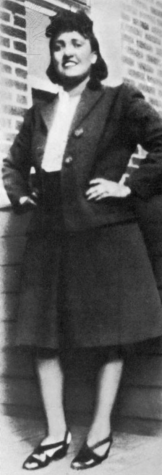This Day in History: October 4th, 1951
Henrietta Lacks Passes Away
October 28, 2021

For many, October 4th is not a special day. However, on this day in history, a remarkable woman named Henrietta Lacks passed away from cervical cancer. Henrietta Lacks was a black woman living in Virginia when she was diagnosed with cancer. Part of her cancerous cells was cut out and sent to a tissue lab to grow with many other cell samples. Unlike the others, though, Henrietta’s cells multiplied rapidly and thrived, essentially becoming immortal. Her cells became known as HeLa cells and would contribute to many scientific discoveries, such as the development of the polio vaccine.
Unfortunately, Lacks did not receive full credit for her cells. In fact, she and her family were completely unaware that millions of HeLa cells were growing worldwide. HeLa was developed in a time when informed consent was not required in the medical field, and patients were not informed what happened to their tissue samples or what they were used for. As a result, nobody knew Henrietta’s true identity, and her family never received any benefits from the breakthroughs that her cells contributed to. Nowadays, if doctors want to obtain a sample for research purposes, federal law requires the patient to consent.
This year, Berkeley sophomores are studying the importance of Henrietta’s life and how she has impacted the medical science field using the book The Immortal Life of Henrietta Lacks written by Rebecca Skloot. This book highlights all sides of her story, including the importance of recognizing the stories of the people behind the greatest points in history. The John Hopkins hospital now recognizes her importance on their website, but Skloot’s book offers a personal look into Henrietta’s story.



